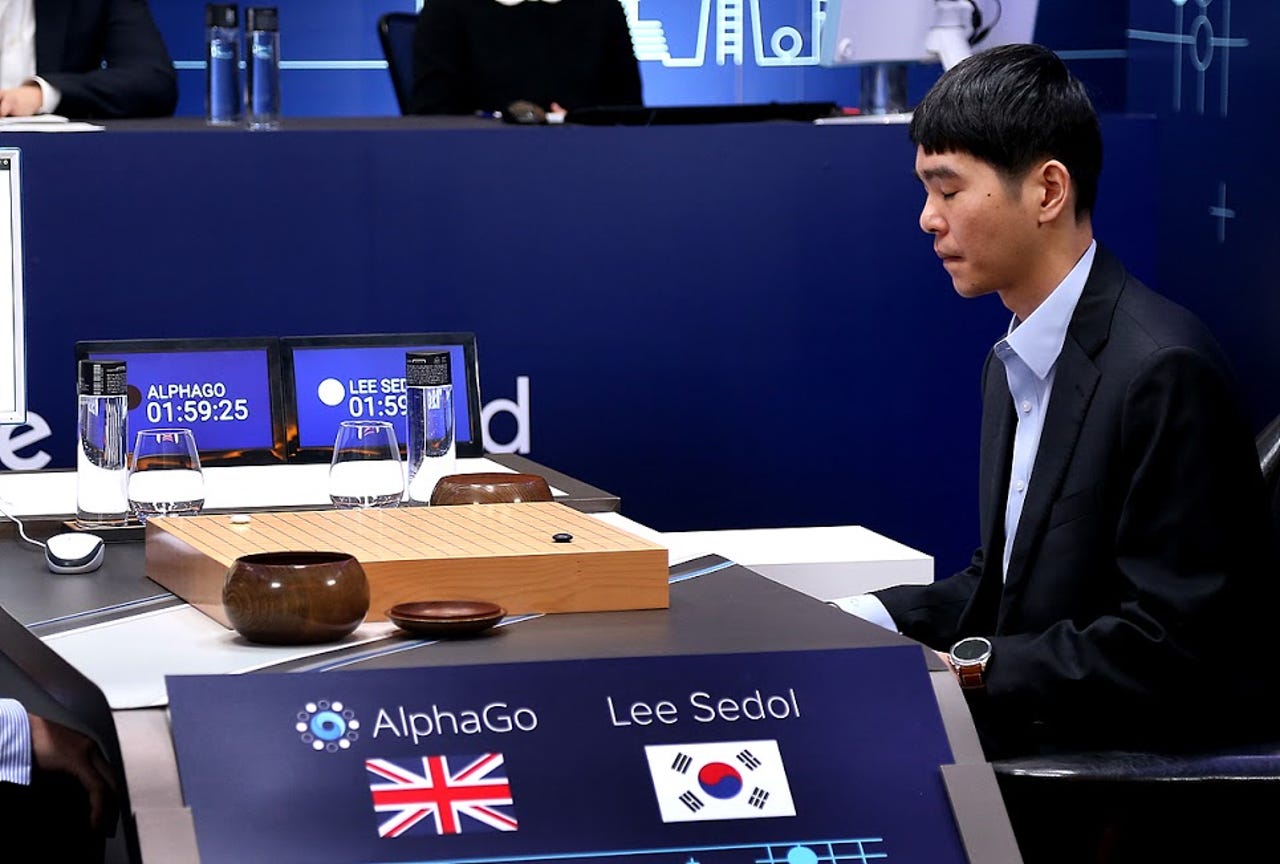DeepMind AI wins second game against Korean Go champion

DeepMind's Artificial Intelligence (AI) beat South Korean Go champion for the second time in a row in the landmark battle between man and machine, though not as overwhelmingly as the first, with more twists and turns in this game.

AlphaGo defeated an exhausted-looking Lee Se-dol in the second round of five, when the latter resigned 26 minutes into overtime in the game taking place at the Four Seasons Hotel, Seoul.
This time, AlphaGo went first with black stones -- Lee opened the game for the first match -- as different to chess, black starts the game over white.
The game was played out opposite to how the previous had -- AlphaGo opened aggressively while the South Korean champion played more defensively.
Latest news on Asia
Lee was more composed in the beginning than in the first match, but seemed surprised on two occasions in the middle of the game when the AI changed up its attack -- called a "winning move" or "irregular move" in Korean where a player attempts to abruptly change his pattern -- which Korean commentators called "a move that regular players do not do... inhuman." The 33-year-old looked increasingly tense as the game went on.
Korean commentators and professional players who personally know the champion, said they'd "never seen Lee this nervous and make such as serious face".
Unlike the first match where he threw the stone, or surrendered, with 20 minutes remaining in the clock, the 33-year-old used all his overtime and seemed to put in considerable effort to concentrate. He himself attempted multiple winning moves to change the tide of the game with AlphaGo machine-calmly "answering" and maintaining its lead.
The match lasted 211 turns -- more than the first game's 186 -- with Lee resigning at 26 minutes into overtime.
Professional players gathered at the Four Seasons Hotel to watch the game firsthand, telling ZDNet that the game was "nerve-wracking" and was impossible to predict the winner.
A total of 60 million viewers watched the first match online in China and over 100 million worldwide, and 3,300 TV and news articles appeared on the match in South Korea, DeepMind CEO Demis Hassabis tweeted.
When choosing a move, AlphaGo doesn't care about the margin of the win, but only the probability of the win, a member of the DeepMind team explained during the match.
Usually, players in Go consider the points they can secure from a move, unlike AI, Korean commentators explained. The algorithm that does this seems to be giving the impression of AlphaGo being "inhuman" and initially a mistake.
Song Tae-gon, a 9-dan professional and commentator, said: "The first match was about [Lee] testing AlphaGo, but this time it was a committed game. The loss will pressure [him] in the third and fourth match."
Lee admitted after the first match that he was "shocked" by the AI's skills and said his chance of winning was 50:50. He said he was committed to win, however. He is a 9-dan, the highest skill level for Go, and among the top players in the world.
Go is a Chinese board game played by two players alternatively placing black and white stones, or playing pieces, with the goal to surround more territory than your opponent. It has more variables than chess and until now was considered difficult to teach to computers.
Alphabet executive chairman Eric Schmidt has called the landmark games a win for humanity.
The third, crucial match kicks off on Saturday.